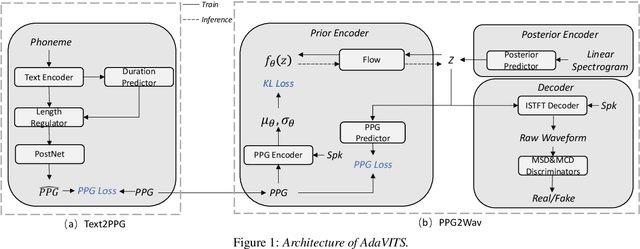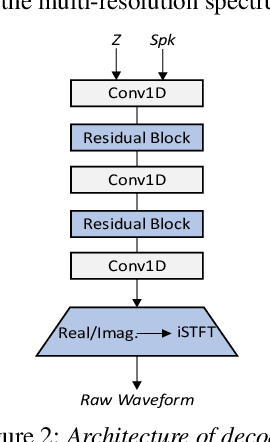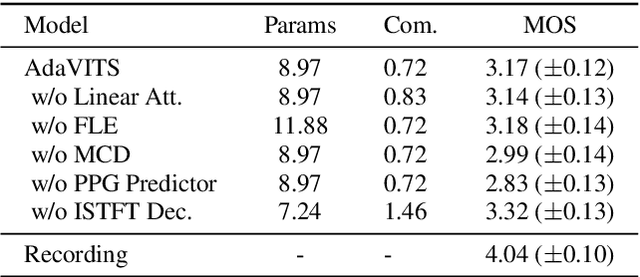AdaVITS: Tiny VITS for Low Computing Resource Speaker Adaptation
Paper and Code
Jun 01, 2022



Speaker adaptation in text-to-speech synthesis (TTS) is to finetune a pre-trained TTS model to adapt to new target speakers with limited data. While much effort has been conducted towards this task, seldom work has been performed for low computational resource scenarios due to the challenges raised by the requirement of the lightweight model and less computational complexity. In this paper, a tiny VITS-based TTS model, named AdaVITS, for low computing resource speaker adaptation is proposed. To effectively reduce parameters and computational complexity of VITS, an iSTFT-based wave construction decoder is proposed to replace the upsampling-based decoder which is resource-consuming in the original VITS. Besides, NanoFlow is introduced to share the density estimate across flow blocks to reduce the parameters of the prior encoder. Furthermore, to reduce the computational complexity of the textual encoder, scaled-dot attention is replaced with linear attention. To deal with the instability caused by the simplified model, instead of using the original text encoder, phonetic posteriorgram (PPG) is utilized as linguistic feature via a text-to-PPG module, which is then used as input for the encoder. Experiment shows that AdaVITS can generate stable and natural speech in speaker adaptation with 8.97M model parameters and 0.72GFlops computational complexity.
 Add to Chrome
Add to Chrome Add to Firefox
Add to Firefox Add to Edge
Add to Edge